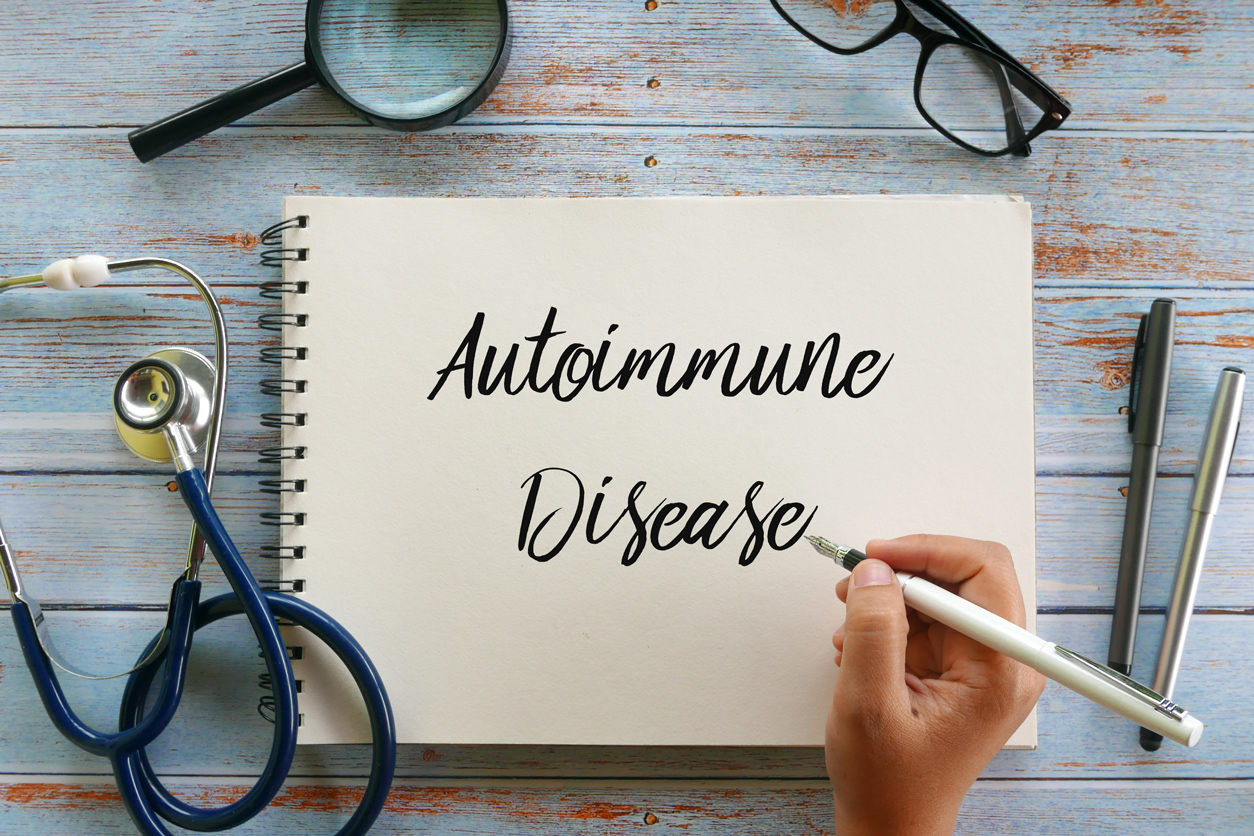 “Dr. Clowse’s presentation started us on the right path for this series on inflammation and autoimmunity in women,” said Packenham. (Photo courtesy of Steve McCaw / NIEHS)
“Dr. Clowse’s presentation started us on the right path for this series on inflammation and autoimmunity in women,” said Packenham. (Photo courtesy of Steve McCaw / NIEHS)The NIEHS Women’s Health Awareness (WHA) Program conducted environmental health needs assessments of community members who attended WHA conferences in 2018 and 2019. Finding the prevalence of autoimmune disorders among those individuals to be higher than the national average, program coordinators began to develop resources to address this concern. On Jan 13, they introduced an educational webinar series titled “Women’s Health and Inflammation: Controlling Inflammation for a Healthier You.” Many autoimmune diseases cause redness, swelling, and pain — signs of inflammation.
Goals of the new series are to increase awareness about inflammation and autoimmune disorders; enhance health literacy; and provide WHA community members with a comprehensive educational resource that can inform their decision-making.
“Many of our participants are living with autoimmune disorders,” said Joan Packenham, Ph.D., who directs both the NIEHS Office of Human Research and Community Engagement and the WHA Program. “Tonight's webinar allowed us an opportunity to focus on this health concern and set a foundation for understanding the connection between inflammation and overall health in particular autoimmune diseases.”
Women affected more than men
 “Based on the most recent data, about 200,000 people in the United States have lupus,” said Clowse. (Photo courtesy of Megan Clowse)
“Based on the most recent data, about 200,000 people in the United States have lupus,” said Clowse. (Photo courtesy of Megan Clowse)Guest speaker Megan Clowse, M.D., a rheumatologist and associate professor of medicine at Duke University, focused on how inflammation and autoimmune diseases affect women in their reproductive years. She also described how COVID-19 has heightened related health challenges (see sidebar). Clowse is founding director of the Duke Lupus Clinic and creator of lupuspregnancy.org.
“Autoimmune diseases, such as lupus, rheumatoid arthritis, and thyroid disease, tend to affect women more than men,” she said.
Clowse noted that the rates are striking. She said that 10 women have autoimmune thyroid disease for every man who does. In the case of lupus, the ratio is nine to one; for rheumatoid arthritis, three to one; and for multiple sclerosis, two to one.
Risks of autoimmune disease on childbearing are on the minds of many women, according to Clowse.
“The good news is that almost every woman with an autoimmune disease can [still experience healthy pregnancy], but planning and medication are the keys to success,” she said.
Preparing for pregnancy
Women with autoimmune disease should not attempt to become pregnant until their bodies are ready, noted Clowse.
“I see a lot of tragic things happen in our pregnancies without the right preparation,” she said. “It really is heartbreaking.”
Preparing for a safe pregnancy means acclimating the body to pregnancy-compatible medications that control inflammation and blood pressure and staying on them throughout pregnancy.
Immunosuppressing drug levels must be carefully adjusted. Finding the right balance often is the job of maternal-fetal specialists who manage medically complicated pregnancies.
“We want your immune system under control so that you don't attack your own body but not so suppressed that you get terrible infections,” Clowse said. “It means a lot of visits to your rheumatologist, your endocrinologist, and your obstetrician.”
 Autoimmune diseases — such as type 1 diabetes, multiple sclerosis, lupus, and rheumatoid arthritis — affect more than 24 million people in the United States. (Image courtesy of Faizal Ramli / Shutterstock.com)
Autoimmune diseases — such as type 1 diabetes, multiple sclerosis, lupus, and rheumatoid arthritis — affect more than 24 million people in the United States. (Image courtesy of Faizal Ramli / Shutterstock.com)Lupus and preterm birth
Women with rheumatic diseases who do not plan their pregnancies suffer more frequent intensive care nursery stays, more preterm deliveries, and more pregnancy loss, she noted.
Among those diseases, lupus is where Clowse sees the worst pregnancy outcomes. However, there is some good news.
“We know that with careful planning, we can move things like the pregnancy loss rate with lupus from 40% to 20%, and preterm birth from 75% closer to 30%,” she said.
Black women most at risk
Lupus also is a highly discriminatory disease. Black women are 25 times more likely to get lupus than White men.
“Most of the data show that there is some genetic component to autoimmune disease generally,” Clowse said. “It travels in families. But we really do not understand the triggers for it.”
There is considerable speculation on why women generally are more susceptible to autoimmune diseases.
“Women have a somewhat different immune system than men,” Clowse said. “If you think about a pregnancy, it’s almost like a transplant. A woman's immune system has to be more pliable to tolerate a baby.”
Recognizing February as American Heart Month, the next webinar (Thursday, Feb. 10, 6:30 p.m.) will feature Brandy Patterson, M.D., a cardiologist at Duke Health. The eighth annual Women's Health Awareness wellness conference will take place Saturday, April 9.
(John Yewell is a contract writer for the NIEHS Office of Communications and Public Liaison.)









